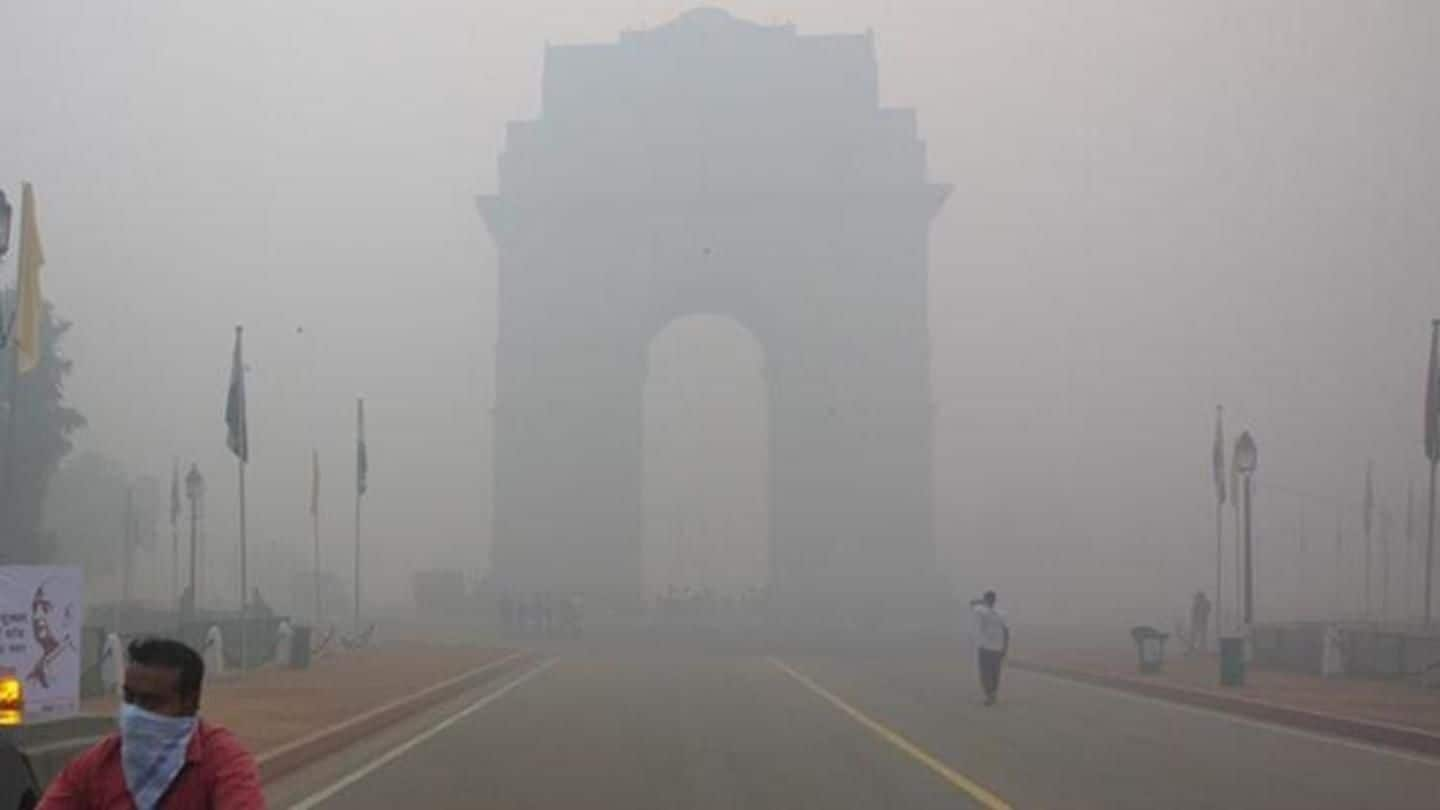
Speed up 'National Clean Air Programme' roll-out, Greenpeace-India urges govt
What's the story
With a massive haze of dust enveloping Delhi and pollution levels dropping to "severe" category, Greenpeace India urged Union Environment Ministry to speed up rolling out its National Clean Air Programme, which proposes multiple strategies to combat air pollution. Greenpeace said air pollution is a "silent and invisible killer" and a national health emergency, asserting big polluters must be held accountable for the menace.
Pollution situation
Air pollution in Delhi remained "severe" for fifth day
The air pollution situation in Delhi remained "severe" for the fifth day on Saturday, but authorities expressed hope the air quality would improve after pollutants begin to disperse. The pollution level had dipped to "severe plus" category at on one point on Saturday but the situation was gradually improving, the Centre-run System of Air Quality and Weather Forecasting and Research Institute (SAFAR) said.
Air pollution
Air pollution prevalent all year round, throughout country: Greenpeace campaigner
"Air pollution is prevalent all year round and throughout the country and not just limited to Delhi. The environment ministry must speed up its pace on rolling out the National Clean Air Programme," said Sunil Dahiya, senior campaigner, climate and energy, Greenpeace India. "Air pollution is a national public health emergency, and the big polluters must be held accountable for the menace," he said.
Information
Environment Ministry has prepared draft NCAP
Environment Ministry has prepared the draft NCAP with an overall objective of a comprehensive management plan for prevention, control, and abatement of air pollution, and augment the air quality monitoring network across India. Various green groups submitted their recommendations to the Ministry on the draft.
Not enough measures
Serious conversation about pollution begins only after hazy days: Dahiya
Although under the Graded-Response Action Plan, all construction activities have been stopped in the capital and authorities plan to strictly enforce prohibition on open burning of garbage and plastics, Dahiya said the measures are not enough. "The haze in north India has become visible now because of dust-laden winds blowing from areas in Rajasthan. But air pollution in north India is omnipresent," he stressed.
Information
Meteorological factors only contribute to air pollution crisis
Dahiya said pollution sources emitting toxic gases through the year push the air pollution to hazardous levels. He dismissed the notion that air pollution happens because of dust storms and other meteorological factors only, but said they exacerbate the situation.
Details
Severe air pollution is apparently 'summer-time problem' too
The PM10 level (presence of particles with a diameter less than 10 micrometers) climbed to 778 in Delhi-NCR and 824 in Delhi on Wednesday. Delhi Lieutenant-Governor Anil Baijal ordered stoppage of all civil construction activities till Sunday. Union Environment Minister Harsh Vardhan has ordered civic agencies to be on "maximum" alert and ensure necessary measures are taken to contain the spread of dust particles.